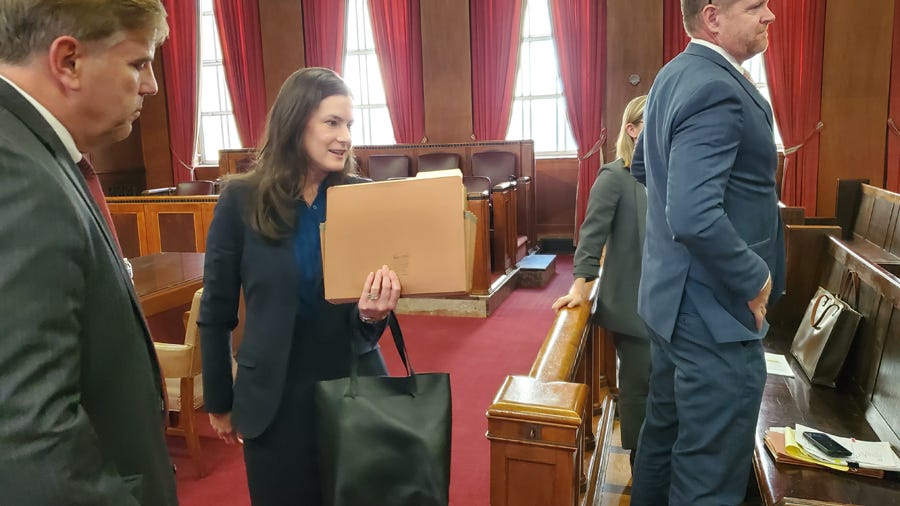2 lawyers escape my prosecution of vampire lenders
Mary Cheadle prosecutes illegal loans with aid of Tennessee courts, and sued me to enforce an IOU past 200% per year

CHATTANOOGA, Tenn., Monday, Dec. 2, 2024 — I’m dropping 2 shyster lawyers from my vampire lender case filed in U.S. district court in Chattanooga.
They are Mary Cheadle from Cheadle Law in Nashville and the James B.M. Hooper debt-collecting crew in a downtown office tower in Chattanooga.
They are excused almost in the same week they receive delayed service of my complaint by certified mail. Judge Travis McDonough orders dismissal of the lawyer parties, leaving two vampire lenders and a bad debt buyer for me to bring to bar for usury and fraud in violation of state law.
Flexibility Capital of New York fraudulently offers loan applications dressed up as contracts for it to purchase future business receivables. Its effective annual interest rate is 208.05 percent.
Lendini, based in Pennsylvania, has interest rates of 593.44 percent, more than doubling its money over 132 days.
QUICK TAKE ————-
— Suit seeks to ban lenders who violate usury law
— Lendini’s APR is 593%
— MCA industry disguises loans as purchases of receivables — sucking dry local economy
From these defendants I’m demanding a trial, aggravated damages and also prohibition from the court of doing business in Tennessee entirely for two years, and permanent injunction from using contracts among Tennesseans like those entered as exhibits in the case.
State usury law prevents loans past 10 percent per annum. Only loans are regulated. A loan is an extension of credit with absolute requirement of repayment. Advance purchases of future receivables are a sale, not a loan, and so not subject to the APR limit in usury.
Support princely combat v. principalities & powers
The lenders are called MCAs or merchant cash advance lenders. They are parasites and opportunists. Their contracts are fraudulent and deceptive. I encountered Lendini and Flexibility in court after being wrecked financially in my and my business partner’s radio business in 2020 from the Covid-19 fraud “emergency.” Lendini and Flexibility sued for full payment.
The Flexibility case went up on appeal to the court of appeals. The supreme court refused to consider my petition for relief. The bad-debt buyer of the Lendini lawsuit against me dropped its case in sessions court, but has a year to refile.
My Flexibility appeal was the first of its kind to go up, raising the issue over whether criminals in business can use the courts to enforce illegal contracts. The answer in Tennessee courts is: Sure ’nuff.
Judge McDonough dismisses the lawyer parties because they are in Tennessee. He reviewed my amended complaint, filed to attempt to keep all the parties in the case on the basis of federal law, namely RICO. These grounds, he rules, are insufficient, so the lawyers a “not indispensable parties” are spared being brought to justice. The basis for the case to proceed in federal court is diversity, meaning all the parties are in different states.



